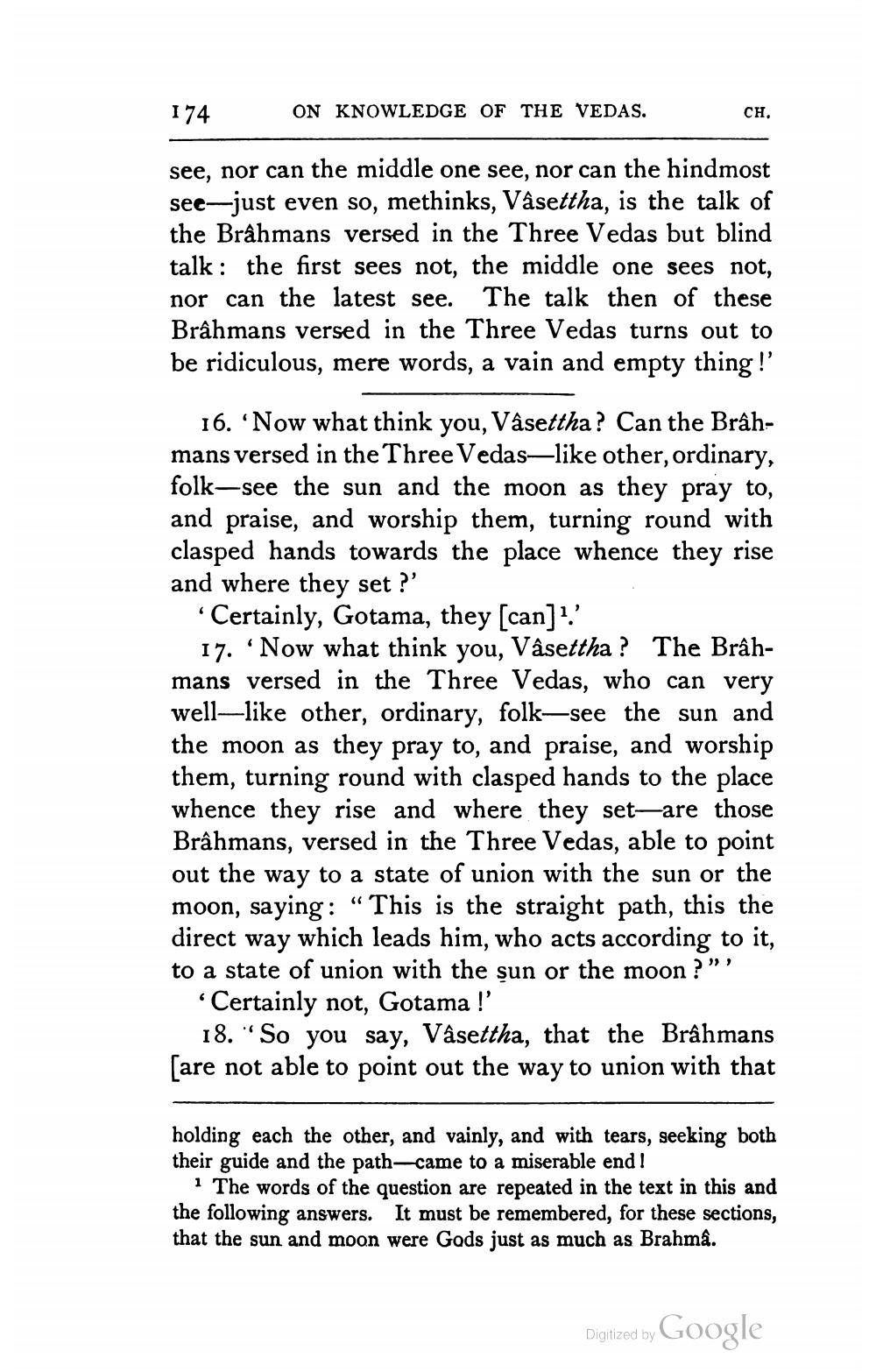________________
174
ON KNOWLEDGE OF THE VEDAS.
CH,
see, nor can the middle one see, nor can the hindmost see—just even so, methinks, Vasettha, is the talk of the Brâhmans versed in the Three Vedas but blind talk: the first sees not, the middle one sees not, nor can the latest see. The talk then of these Brâhmans versed in the Three Vedas turns out to be ridiculous, mere words, a vain and empty thing !'
16. 'Now what think you, Vasettha ? Can the Brâhmans versed in the Three Vedas—like other, ordinary, folk-see the sun and the moon as they pray to, and praise, and worship them, turning round with clasped hands towards the place whence they rise and where they set ?'
Certainly, Gotama, they scan]?.'
17. Now what think you, Vâsettha ? The Brâhmans versed in the Three Vedas, who can very well—like other, ordinary, folk-see the sun and the moon as they pray to, and praise, and worship them, turning round with clasped hands to the place whence they rise and where they set-are those Brâhmans, versed in the Three Vedas, able to point out the way to a state of union with the sun or the moon, saying: “This is the straight path, this the direct way which leads him, who acts according to it, to a state of union with the sun or the moon ?”.
Certainly not, Gotama!
18. "So you say, Vasettha, that the Brâhmans [are not able to point out the way to union with that
holding each the other, and vainly, and with tears, seeking both their guide and the path came to a miserable end!
1 The words of the question are repeated in the text in this and the following answers. It must be remembered, for these sections, that the sun and moon were Gods just as much as Brahmâ.
Digitized by Google




